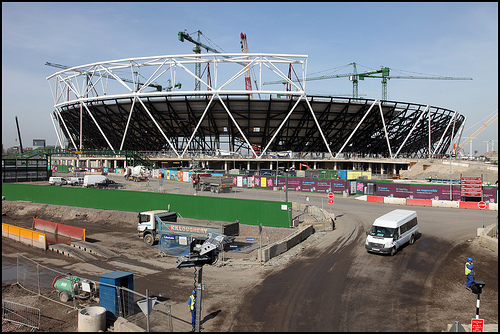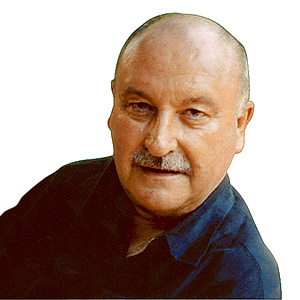So London is to bid for the 2015 World Athletics Championships. That’s the good news. The not-so-good news is that this has “ramifications” for the future of the Olympic Stadium, which would be used to host the Championships.
Presumably this means that West Ham’s chances of moving into the stadium are out of the window. If so, that’s not only a shame, but a huge mistake.
For the Olympic Stadium is a natural home for then East London football club, and I believe their occupancy is the only way it could become economically viable and not the whitest of elephants.
When Seb Coe made his pledge to the IOC back in 2005 that a London Olympics bid would leave an athletics legacy I nodded in agreement. But I have changed my mind. I no longer believe that track and field should be a priority – and this is not because I am a West Ham fan who has been forever blowing bubbles since the heady days of Moore, Hurst and Peters and the aesthetic generalship of Ron Greenwood.
It is simply that since that promise was made the economic climate has changed dramatically, something even the IOC have recognised, and it is imperative that projects such as the Olympic Stadium pay their way. I no longer believe this could happen by reducing it to a capacity of 25,000 that would be used at the most two or three times a year for athletic events.
There has to be a compromise that would allow the Hammers to be the principal tenant of a stadium that could be used as and when needed for athletic events (including the World Championships should the bid be successful) with retractable seating a la Stade de France. Of course any such conversion would be costly, but a worthwhile investment nonetheless.

It would mean the stadium has regular rather than spasmodic use and could be a showpiece arena, a ready-made venue for World Cup matches should England win the bid for the 2018 event and one that would attract boxing promotions like the world lightweight title fight being staged at Upton Park in May between East Londoner Kevin Mitchell and Australian Michael Katsidis.
The promoter Frank Warren would certainly welcome the Olympic Stadium as a perfect venue for major events which could draw similar open air crowds to the 50,000 which saw Manny Pacquiao defend his world welterweight title against Joshua Clottey at the Dallas Cowboys stadium in Arlington, Texas, last weekend.
As for the athletics legacy, well, it would still be there and I feel sure both the IOC and IAAF would be realistic enough to recognise that the new economic circumstances any small dilution of the original pledge is both necessary and unavoidable.
Manchester has shown how a stadium designed for the Commonwealth Games can be transformed into one of the most attractive football venues in the country (admittedly they permanently ditched the athletics track). Something similar must happen in east London, and surely it is not beyond the wit of those involved, from the 2012 board and West Ham, to the Mayor and the Government, to ensure it does.
Without a football club I doubt the stadium will be financially viable and 2012 will be left with the sort of legacy it did not want. A bursting bubble.
Alan Hubbard is an award-winning sports columnist for The Independent on Sunday, and a former sports editor of The Observer. He has covered a total of 16 Summer and Winter Olympics and several World Cups

